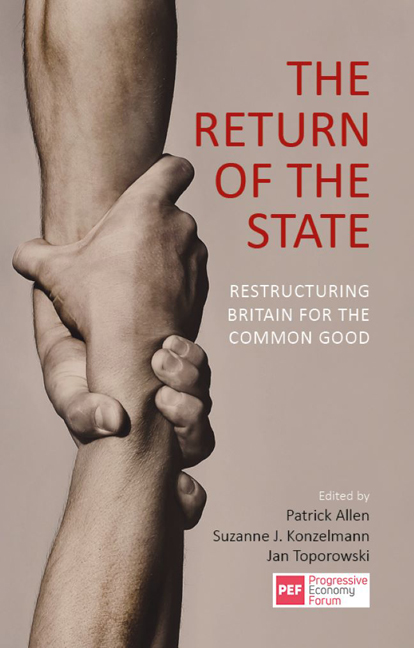2 - Rentier capitalism: the role of finance in the macroeconomy
Published online by Cambridge University Press: 22 December 2023
Summary
The battle for post-Covid-19 economic policy has to be won at the intellectual level before it can be won at the political level. Ideas always come first: intelligence can tame power. If there are no persuasive new ideas, politics will simply recycle the ideas of those who last had ideas. This recycling is in full swing.
The last set of ideas in economic policy were those associated with those of the rational expectations and monetarist schools, slightly modified by “new Keynesianism”. From this mix of value and monetary theory came the proposition – rooted in Léon Walras and David Hume – that market economies are spontaneously self-adjusting to a full employment equilibrium provided money is kept in order. No fiscal policy is required to balance the economy's books. All government needed to do in the way of macropolicy was to set independent central banks inflation targets, leaving them free to choose appropriate bank rates.
It may be objected that, since 2008, policy has been nothing like this. Emergency measures have been applied twice: in the immediate aftermath of the banking collapse of 2008/9 and to offset the partial lockdown of the economy in 2020. But one can think of these events as exceptions to the rules, too rare to justify dynamiting the theory of the self-regulating market. As US economist Robert Lucas remarked in 2009, “I guess everyone is a Keynesian in the foxhole.” In the foxhole – but not out of it: Keynes was for emergencies only.
We have the same reaction today. Impelled to close down 30 per cent of their economies to stop the spread of the coronavirus, governments have spent money freely, to support businesses and pay wages. They hope that, as the economy, reopens a V-shaped recovery will relieve them of their fiscal burden. This will not happen. To understand why, we need to start in a different place; that is, with Keynes.
Keynes's theory
For Keynes, “[t] he outstanding faults of the economic society in which we live are its failure to provide for full employment and its arbitrary and inequitable distribution of wealth and incomes”. His theory dealt with the first failure, in the 1930s.
- Type
- Chapter
- Information
- The Return of the StateRestructuring Britain for the Common Good, pp. 21 - 34Publisher: Agenda PublishingPrint publication year: 2021



